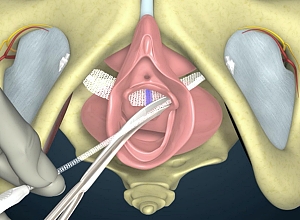Following a landmark Australian judgment and successful litigation in Canada, the UK and USA, South African lawyers are launching a class action over the injury and loss associated with debilitating injuries caused by defective pelvic mesh devices have caused, writes MedicalBrief.
RH Lawyers and Richard Spoor Attorneys will bring the lawsuit against Coloplast, the Nu-Angle Group, Johnson & Johnson, Ethicon and Ashanti Medical. Attorney Richard Spoor said that at present they had 24 clients and anticipated filing an application for the certification of a class action by the middle of September.
Lundell, a class action specialist at RH lawyers, told Business Day. “The decision comes in light of a landmark ruling out of the Federal Court of Australia in November 2019, wherein it was found that Johnson & Johnson and its subsidiaries Ethicon Sarl and Ethicon had, among other things, misled patients and surgeons about the risks associated with their pelvic mesh products. Based on the number of pelvic mesh surgeries we have received from medical aid companies, we estimate at least 1,000 women are affected,” said Lundell.
But Ethicon said that risks could occur and no class actions were pending around its pelvic mesh products. “Patient safety is our first priority. Pelvic mesh has helped improve the quality of life for millions of women with stress urinary incontinence and pelvic organ prolapse,” it said. It said Ethicon acted ethically and responsibly in the research, development and supply of these products and the majority of women with pelvic mesh see an improvement in their day-to-day lives.
Richard Spoor Attorneys said in a statement that the pelvic mesh devices are used during pelvic mesh surgeries to treat stress urinary incontinence (SUI) and pelvic organ prolapse (POP), two commonly occurring conditions in women. The pelvic mesh devices are made wholly or partly from a type of polymer known as polypropylene and are implanted trans-vaginally.
“These pelvic mesh devices have been shown to contain defects that render them unfit and unsafe for use as permanent medical implants and result in numerous post-operative complications that are significantly higher than that of comparable products and medical procedures. The nature of the defects arises from the fundamental incompatibility of polypropylene for use in a permanent mesh implant in the vaginal and/or pelvic region of the human body. The design and procedure for implantation of the pelvic mesh devices prevents and/or precludes the ability to surgically remove or excise the pelvic mesh devices once implanted due to the integration of the device into surrounding bodily tissue.
“These defects cause and/or materially contribute to numerous adverse health conditions and medical complications leading to injury and bodily harm including, painful recurrent erosions and intractable chronic pain, excessive blood loss and vascular damage, permanent nerve injury, subclinical infections, erosion and inflammation of tissue, migration, a build-up of seromas, nerve entrapment, sexual dysfunction and incessant discomfort and pain.
“At least some of the aforesaid companies failed to adequately warn or instruct women implanted with these pelvic mesh devices of the defects, the associated and increased risks of complications and the fact that treatment of SUI and POP with the use of trans-vaginal mesh is less effective than safer alternative treatments.”
The circumstances giving rise to the possible claims are that one or more of the companies named, are:
1. They sold pelvic mesh devices in South Africa that were defective and caused patients significant, long-term injuries;
2. They failed to warn the public of the risks associated with these pelvic mesh devices by underreporting information to medical practitioners, regulators, regarding the propensity of the pelvic mesh devices to cause severe injury and complications; and
3. They failed to perform adequate testing and research to evaluate the nature, magnitude and frequency of complications and injuries associated with the use of pelvic mesh devices.
Consequentially, the pelvic mesh devices fail to perform as intended, require frequent and invasive re-operations and have caused severe and irreversible injuries, to a vast number of women.
“This class action highlights a wider regulatory issue regarding the certification of medical devices. Medical devices, such as the mesh implant, are inadequately tested; the testing sample sizes are often insufficient and the long-term effects of new medical devices are not comprehensively understood, before they are released onto the market. This compromises the safety and effectiveness of the device and often leads to irreversible injuries to the patient.
“The proposed class action in South Africa follows numerous successful lawsuits in other jurisdictions, including Australia, the UK, Canada and the US concerning mesh-related injuries against pelvic mesh device producing companies.
“In November 2019, more than 1 350 Australian women won a seven-year-long class action lawsuit against Johnson & Johnson for misleading patients and surgeons about the risks of the pelvic mesh devices. In March 2020, the Federal Court in Australia ordered Johnson & Johnson to pay three women a total of $1.7 million plus legal costs as compensation for misleading patients and surgeons about the risks associated with its pelvic mesh devices.
“In addition, the US Food and Drug Association ordered a stoppage in the sale and usage of all mesh devices in the US for the treatment of POP. Medical regulators in Australia, New Zealand, the UK, and Scotland have also imposed bans on the use of pelvic mesh devices due to the risks and high rates of complications.”
Anyone affected by the products can contact either of the firms involved.
See more from MedicalBrief archives:
SA group plans vaginal mesh class action
Boston Scientific settles claims over deceptive surgical mesh marketing
Aussie women in landmark class action victory

